Related Research Articles
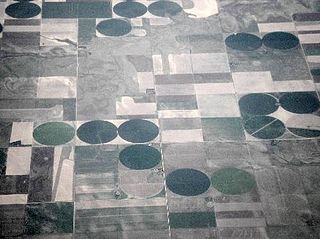
A farm is an area of land that is devoted primarily to agricultural processes with the primary objective of producing food and other crops; it is the basic facility in food production. The name is used for specialized units such as arable farms, vegetable farms, fruit farms, dairy, pig and poultry farms, and land used for the production of natural fiber, biofuel, and other commodities. It includes ranches, feedlots, orchards, plantations and estates, smallholdings, and hobby farms, and includes the farmhouse and agricultural buildings as well as the land. In modern times, the term has been extended so as to include such industrial operations as wind farms and fish farms, both of which can operate on land or at sea.

A grocery store (AE), grocery shop (BE) or simply grocery is a foodservice retail store that primarily retails a general range of food products, which may be fresh or packaged. In everyday U.S. usage, however, "grocery store" is a synonym for supermarket, and is not used to refer to other types of stores that sell groceries. In the UK, shops that sell food are distinguished as grocers or grocery shops.
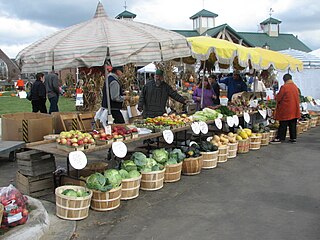
A farmers' market is a physical retail marketplace intended to sell foods directly by farmers to consumers. Farmers' markets may be indoors or outdoors and typically consist of booths, tables or stands where farmers sell their produce, live animals and plants, and sometimes prepared foods and beverages. Farmers' markets exist in many countries worldwide and reflect the local culture and economy. The size of the market may be just a few stalls or it may be as large as several city blocks. Due to their nature, they tend to be less rigidly regulated than retail produce shops.

The Ministry of Agriculture, Fisheries and Food (MAFF) was a United Kingdom government department created by the Board of Agriculture Act 1889 and at that time called the Board of Agriculture, and then from 1903 the Board of Agriculture and Fisheries, and from 1919 the Ministry of Agriculture and Fisheries. It attained its final name in 1955 with the addition of responsibilities for the British food industry to the existing responsibilities for agriculture and the fishing industry, a name that lasted until the Ministry was dissolved in 2002, at which point its responsibilities had been merged into the Department for Environment, Food and Rural Affairs (Defra).
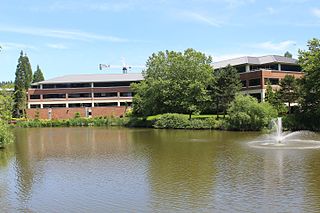
Costco Wholesale Corporation is an American multinational corporation which operates a chain of membership-only big-box warehouse club retail stores. As of 2023, Costco is the third-largest retailer in the world and is the world's largest retailer of choice and prime beef, organic foods, rotisserie chicken, and wine as of 2016. Costco is ranked #11 on the Fortune 500 rankings of the largest United States corporations by total revenue.

A private label, also called a private brand or private-label brand, is a brand owned by a company, offered by that company alongside and competing with brands from other businesses. A private-label brand is almost always offered exclusively by the firm that owns it, although in rare instances the brand is licensed to another company. The term often describes products, but can also encompass services.

Wellcome is a supermarket chain owned by British conglomerate Jardine Matheson Holdings via its DFI Retail Group subsidiary. The Wellcome supermarket chain is one of the two largest supermarket chains in Hong Kong, the other being ParknShop.

The meat industry are the people and companies engaged in modern industrialized livestock agriculture for the production, packing, preservation and marketing of meat. In economics, the meat industry is a fusion of primary (agriculture) and secondary (industry) activity and hard to characterize strictly in terms of either one alone. The greater part of the meat industry is the meat packing industry – the segment that handles the slaughtering, processing, packaging, and distribution of animals such as poultry, cattle, pigs, sheep and other livestock.
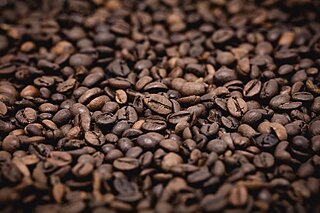
Coffee is a popular beverage and an important commodity. Tens of millions of small producers in developing countries make their living growing coffee. Over 2.25 billion cups of coffee are consumed in the world daily. Over 90 percent of coffee production takes place in developing countries — mainly South America — while consumption happens primarily in industrialized economies. There are 25 million small producers who rely on coffee for a living worldwide. In Brazil, where almost a third of the world's coffee is produced, over five million people are employed in the cultivation and harvesting of over three billion coffee plants; it is a more labor-intensive culture than alternative cultures of the same regions, such as sugar cane or cattle, as its cultivation is not automated, requiring frequent human attention.
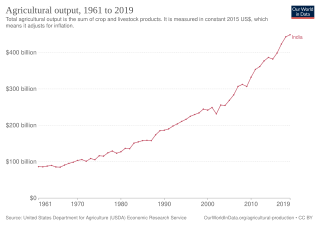
The history of agriculture in India dates back to the Neolithic period. India ranks second worldwide in farm outputs. As per the Indian economic survey 2020 -21, agriculture employed more than 50% of the Indian workforce and contributed 20.2% to the country's GDP.

Industrial agriculture is a form of modern farming that refers to the industrialized production of crops and animals and animal products like eggs or milk. The methods of industrial agriculture include innovation in agricultural machinery and farming methods, genetic technology, techniques for achieving economies of scale in production, the creation of new markets for consumption, the application of patent protection to genetic information, and global trade. These methods are widespread in developed nations and increasingly prevalent worldwide. Most of the meat, dairy, eggs, fruits and vegetables available in supermarkets are produced in this way.

Retailing in India is one of the pillars of its economy and accounts for about 10 percent of its GDP. The Indian retail market is estimated to be worth $1.3 trillion as of 2022. India is one of the fastest growing retail markets in the world, with 1.4 billion people.

Agriculture in Ethiopia is the foundation of the country's economy, accounting for half of gross domestic product (GDP), 83.9% of exports, and 80% of total employment.
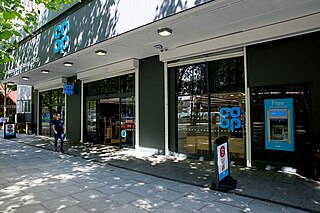
Co-op Food is a brand used for the food retail business of The Co-operative Group in the United Kingdom.
Cold Storage is a Singaporean multinational supermarket company currently owned by DFI Retail Group. Its parent company also operates Market Place stores, now branded as Cold Storage Fresh, as well as the Giant hypermarket brand, and has various other supermarkets around Asia including Hero and Wellcome.
In 2021, Germany was the third largest importer and exporter of consumer oriented agricultural products worldwide, and by far the most important European market for foreign producers. The retail market's key characteristics are consolidation, market saturation, strong competition and low prices. Germany is an attractive and cost-efficient location in the center of the EU. While many consumers are very price sensitive, the market also provides many wealthy consumers who follow value-for-money concepts. These consumers are looking for premium quality products and are willing to pay higher prices. Germany still has some of the lowest food prices in Europe, and German citizens spend only about 14 percent of their income on food and beverages. Low food prices are a result of high competition between discounters and the grocery retail sale segment.
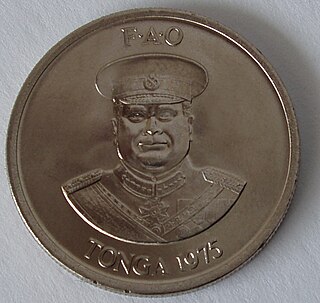
Tonga's economy is characterized by a large nonmonetary sector and a heavy dependence on remittances from the half of the country's population that lives abroad, chiefly in Australia, New Zealand, and the United States. Much of the monetary sector of the economy is dominated, if not owned, by the royal family and nobles. This is particularly true of the telecommunications and satellite services. Much of small business, particularly retailing on Tongatapu, is now dominated by recent Chinese immigrants who arrived under a cash-for-passports scheme that ended in 1998.

Heron Foods Ltd. is an English retail chain founded in 1979 and based in Melton with 293 stores as of 1 July 2020.
In the agricultural context, diversification can be regarded as the re-allocation of some of a farm's productive resources, such as land, capital, farm equipment and labour to other products and, particularly in richer countries, to non-farming activities such as restaurants and shops. Factors leading to decisions to diversify are many, but include: reducing risk, responding to changing consumer demands or changing government policy, responding to external shocks and, more recently, as a consequence of climate change.

The Essential Commodities Act (ECA) is an act of the Parliament of India that was established to ensure the delivery of certain commodities or products, the supply of which, if obstructed due to hoarding or black marketing, would affect the normal life of the people. This includes foodstuff, drugs, fuel etc. This act was modified by the Essential Commodities (Amendment) Act, 2020 as part of the 2020 Indian farm reforms.
References
![]() This article incorporates public domain material from Jasper Womach. Report for Congress: Agriculture: A Glossary of Terms, Programs, and Laws, 2005 Edition (PDF). Congressional Research Service.
This article incorporates public domain material from Jasper Womach. Report for Congress: Agriculture: A Glossary of Terms, Programs, and Laws, 2005 Edition (PDF). Congressional Research Service.